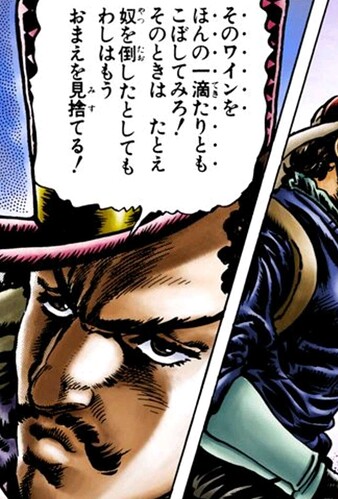I’ve asked a few Japanese people about this and none of them seem to agree on what’s going on here. I’ve never seen たりとも used in a sentence that wasn’t negative. Someone told me that imperative forms can sometimes mean the opposite (in this case, meaning that he is instead saying “こぼしてみるな”. I could accept that if it weren’t for the てみる here, which complicates it all. The speaker, Zeppeli, is instructing jojo not to spill the wine as a test of his abilities, so てみる meaning “to try” doesn’t make sense to me (“do not try to spill even one drop”, implying that that would be a desirable voluntary action). I’ve seen てみろused as a sort of やれるものならやってみろ kind of thing, but I don’t think that’s the meaning here as one would never doubt if he could spill wine intentionally.
In short, I’m asking if the first sentence is a command or a prohibition. If it’s a command, why is たりとも here? If it’s a prohibition, why is てみる here? I hope this makes sense, thank you

